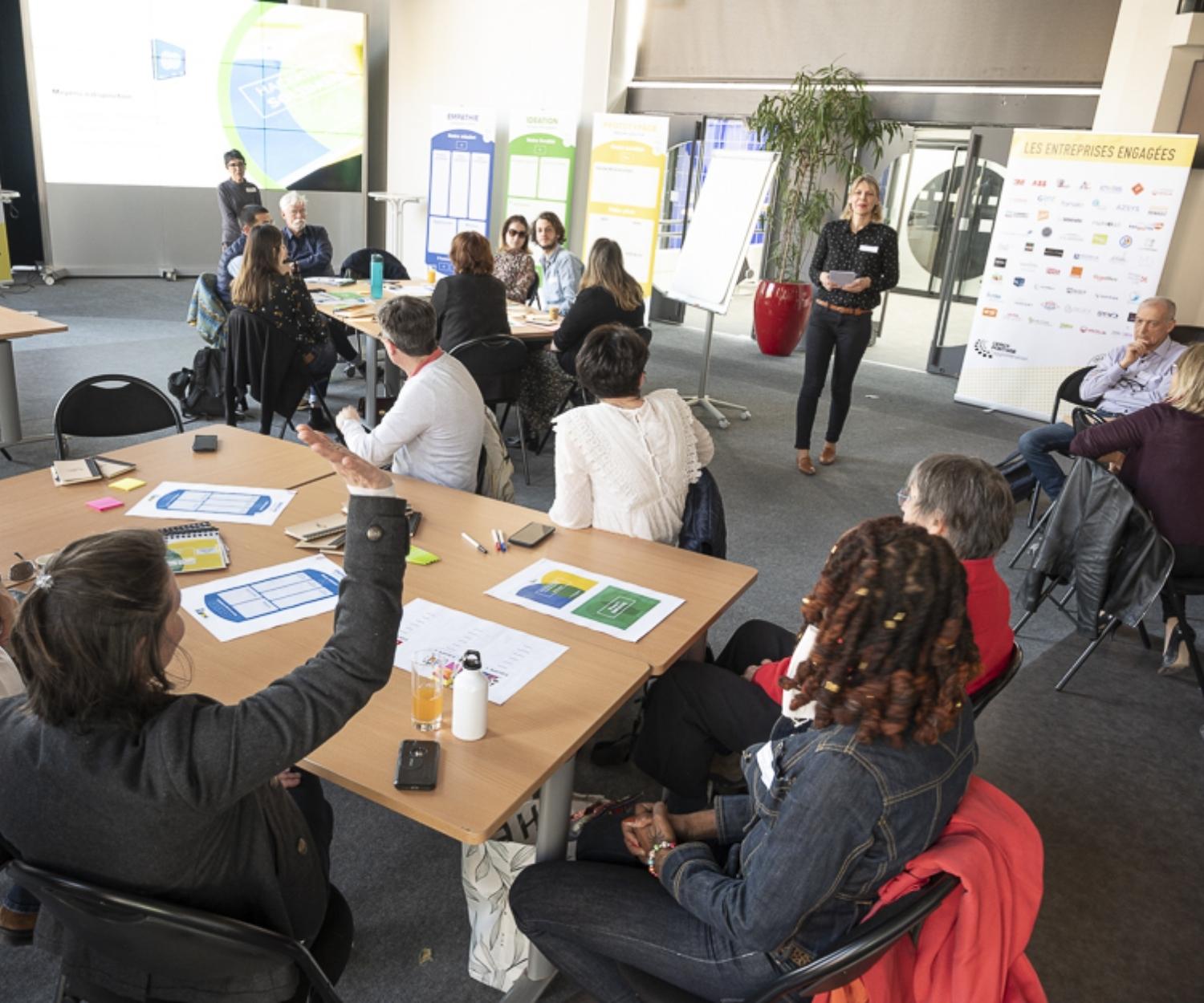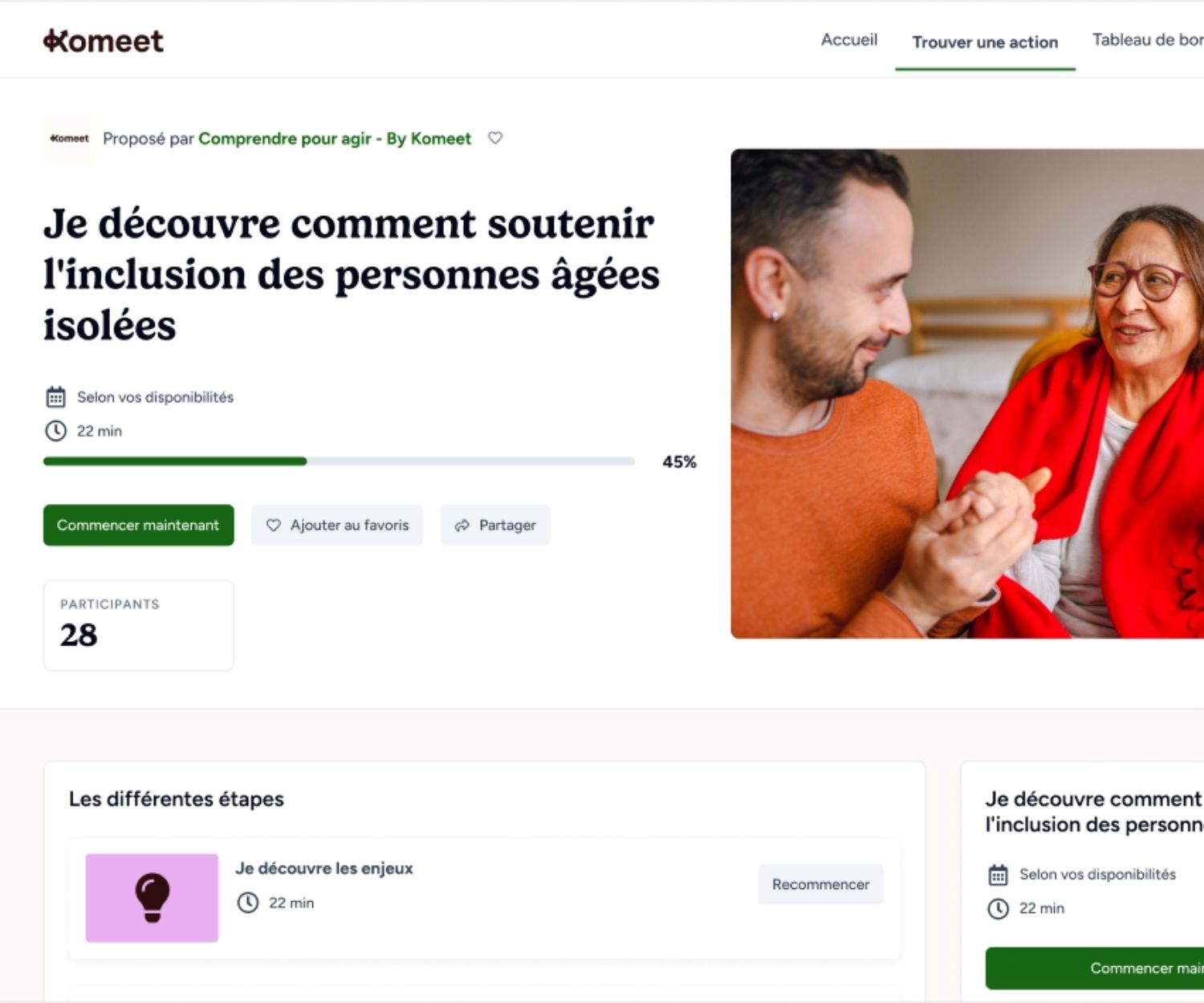Combating discrimination in business: good practices
The diversity of profiles and inclusion within companies are two major assets for their smooth functioning. Age, gender, religion, sexual orientation, and disabilities should not be barriers to work. However, the reality is sometimes quite different. In this article, we suggest that you better understand the concept of inclusion and discrimination in business (and gives you the keys to responding to their challenges).

Understanding inclusion in business
What is an inclusive business?
Before talking about inclusive businesses, let's define the concepts of diversity and inclusion. Although they are complementary, it is important to differentiate them.
Diversity focuses on the recruitment of different profiles in terms of gender, ethnic origins, religions, religions, sexual orientations, sexual orientations, ideologies, lifestyle, physical abilities and many other factors.
Inclusion, on the other hand, opposes discrimination. It describes integrating an individual into the company by promoting a sense of belonging, the quality of team cohesion, autonomy and the value of work.
Combining these two concepts, an inclusive company acts from the recruitment phase by working for the social and professional integration of people who are far from employment, but also other groups likely to face discrimination or obstacles to employment (people with disabilities, seniors, etc.), around a simple philosophy: starting from the potential of each person to allow them access to sustainable employment.
In the same vein, an inclusive company carries out actions aimed at creating a professional environment favorable todevelopment of each employee, regardless of their differences.
Also to read: What are the CSR challenges for businesses in 2025?
What is discrimination in business?
In law, discrimination is unfavorable treatment that must generally meet two conditions: be based on a criterion defined by law (sex, age, disability...) AND relate to a situation covered by the law (access to a job, a service, housing, etc.).
Businesses are at the forefront of discrimination, whether it is a question of access to employment or internal behavior.
Even if the last few years have marked a remarkable evolution for inclusion in business, the numbers remain edifying.
48% of respondents believe that they have been victims of some form of discrimination within their company.
Survey conducted by Diversidays with 1,000 employees
Today, the law defines 26 discrimination criteria:
- Physical appearance
- The age
- The state of health
- Whether or not to belong to an alleged race
- Whether or not to belong to a nation
- Sex
- Gender identity
- Sexual orientation
- Pregnancy
- The disability
- The origin
- The religion
- Bank address
- Political opinions
- Philosophical opinions
- Marital status
- Genetic characteristics
- The manners
- The patronymic
- Trade union activities
- The place of residence
- Whether or not to belong to an ethnic group
- The loss of autonomy
- The ability to express yourself in a foreign language
- Vulnerability resulting from its economic situation
According to a Ifop survey carried out in 2021 with a sample of 4,000 employees, recruitment is the first factor of exclusion.
21% of employees report having already experienced discrimination at the time of hiring. There is a gender gap in this data: 23% of women say they have already experienced discrimination when looking for a job, compared to 19% of men. Finally, 49% of recruiters continue to ask women if they have children.
Focus on the main factors of discrimination
Gender equality, an objective still far from being achieved
Workplace discrimination therefore remains a sad reality, and sexism is an integral part of it.
In 2018, Accor, EY and L'Oréal created the business-to-business initiative Stop Ordinary Sexism in Business.
The #StOpE collective now brings together more than 300 companies and is implementing specific means of action in order to fight against sexism in the workplace.
This association has established a barometer to measure the perception of employees on the persistence of ordinary sexism in companies. The 2025 study Reveals that 70% of women have already been personally confronted with a discriminatory or sexist situation within their company/organization.
The quota system is one of the solutions to promote gender equality. According toDiversidays study, most employees, i.e. seven out of ten, recognize the positive impact of quotas.
Also to read:
Mapping gender equality in business
Gender equality: tips for mobilizing your business
Age, a factor at the heart of concerns
A vector of exclusion that is often forgotten, Diversidays nevertheless underlines that age is the main concern expressed in terms of discrimination, for 45% of young people and 35% of seniors.
In fact, according to a Study by AlterNego (2023) carried out on a sample of 10,000 employees, 52% of those over 60 consider that certain positions are no longer accessible to them (compared to 28% of those aged 45-49).
Nearly a third of seniors feel that they have already been a victim of discrimination, compared to 9% of those in their forties.
The slow progress of businesses in terms of disability
The Ifop barometer (2022) highlights the Paradox between the desire for inclusion and discrimination, whether perceived or real, linked to the integration of people with disabilities in companies.
67% of recruiters consider that hiring people with disabilities is difficult, even though 35% of them believe that their integration is now a priority for businesses.
Inclusion does not only mean adapting positions and working hours, but also involves the training of all teams.
These results are far from satisfactory when we know that the impact of discrimination on the persons concerned is tangible, whether it is a question of a decrease in self-confidence or the destabilization within one's professional activity.
Also to read: Disability in the workplace: how to act for more inclusion?
LGBTQIA+ people facing discrimination in business
According to LGBT+ barometer carried out by Ifop and L'Autre Cercle in 2024, more than half (53%) of LGBTQIA+ people say they have heard LGBTphobic expressions at work. The company is also the 3rd sphere of discrimination (after family and the internet) for the LGBTQIA+ community (Guide: Become an ally of the LGBTQIA+ community)
In our current societies, heterosexuality appears to be the norm and still remains a preferred model. Consequences: LGBTQIA+ people are invisible and difficult to find their place. It is time to change our perspective!
Racial discrimination pervasive in businesses
Racism is a form of discrimination based on the origin or ethnic or racial belonging of the victim, whether real or perceived. It combines prejudices to belittle the person based on their physical appearance and attributes character traits, abilities or even physical or intellectual defects that represent stereotypes or stereotypes.
In a Glassdoor study dating from 2022, 31% of respondents report having witnessed or been victims of racial and ethnic discrimination in business. At the same time, 23% of respondents say they have witnessed or been victims of racial and ethnic discrimination during a recruitment process, and the same proportion (24%) during a promotion: nearly a quarter of respondents.
This leads to reduced career opportunities and a loss of trust in the people concerned.
Why become a more inclusive business?
High expectations in terms of diversity and inclusion among candidates
An inclusive culture reinforces a company's reputation as an inclusive and socially responsible employer, which can attract top talent and retain employees.
Today, 41% of French companies link the subject of diversity to the concept of talent retention according toWorkday Survey carried out in 2023.
The same study also indicates that 84% of job candidates now consider inclusion to be a determining criterion in choosing their company.
The benefits of inclusiveness in business
A solid diversity and inclusion policy brings numerous benefits to a company.
In particular, it makes it possible to:
- Contribute to a more dynamic and creative work environment by bringing together diverse perspectives and encouraging innovation;
- Improving collaboration, communication and cohesion within teams and thus ensures a healthier work environment;
- Also promote the personal and professional development of employees by offering them opportunities to learn and grow in a diverse environment;
- Finally, a company committed to diversity and inclusion can serve as a model for other organizations, thus promoting wider positive change in society.
Mobilize your teams around the theme of inclusion
Supporting associations to fight discrimination
Many associations act for inclusion and need support, whether through human or financial donations. Among them:
- SOS Racism fight against racism, antisemitism and all forms of discrimination.
- SOS Homophobia is an association fighting against lesbophobia, gayphobia, biphobia, transphobia and intersexophobia.
- Arcé acts to change the way women look at the age of women, for the acceptance of this diversity and for the inclusion of senior women in the job market.
- Entourage fight against precariousness and social isolation by engaging citizens..
- Action Handicap France (AHF) aims to raise awareness and train the general public, businesses and structures in issues concerning all types of disabilities, and to propose technical and human solutions.
- Abej solidarity aims to offer welcome, help, assistance, care and support to anyone in difficulty, regardless of age, sex, religion, origin or nationality. She is particularly involved with people deprived of their homes.
Raise awareness and act against discrimination with its teams
Komeet invites you to go further to make your company truly inclusive through concrete actions to offer to your teams:
- Broadcast the guide How to be an ally in the LGTQIA+ community ;
- Offer your employees to support a refugee person in their professional integration with the association Kodiko ;
- Become a partner of the association They're moving! and allow your employees to become godmothers and encourage scientific and technical vocations among young girls;
- Participate At Duo Day by forming pairs between your employees and people with disabilities for a day of sharing and collaboration;
- Discover and share with your teams tools to raise awareness about disability in companies with the #ACTIVATEURDEPROGRÈS platform of theAgefiph
- Organize awareness-raising workshops against LGBTphobias, racism, sexism...;
- Take part in the pride march between colleagues in June;
- Mentor a candidate throughout their job search with The Solidarity Tie.
Animate its commitment process around inclusion and diversity with CSR highlights
Organizing CSR highlights means punctuating the year with actions aligned with a cause, facilitating the involvement of employees and building a sense of collective belonging.
A highlight includes the organization of an important internal event composed of several activities, the choice of a key engagement theme and is done over a limited period of time.
To organize your highlight, you can find key events from CSR calendar according to your priority themes and guide the choice of actions.
Some examples of key CSR dates related to inclusion and diversity:
- International Women's Rights Day - March 8: Make your teams aware of gender inequalities and fight against sexism in society and in business
- Pride month - June: Fight against discrimination against LGBTQIA+ people by raising awareness among your employees and offering them concrete actions for a more inclusive world, especially at work.
- European Week for the Employment of People with Disabilities - November: Let your employees discover the challenges of disability in France and in the world of work and take concrete action against prejudices and discrimination.
Also to read: The 10 Fundamentals of CSR
Diversity and inclusion are crucial for businesses to function properly.
A strong policy in this area brings significant human and social benefits, promoting more balanced and fair workplaces.
It is critical that businesses increase their efforts to promote diversity and inclusion in order to create work environments where everyone feels valued and included.
Go from intention to action
Do you want to commit yourself to a more inclusive society? Discover Komeet and discuss the creation of an engagement program around inclusion.
Explore the platform




